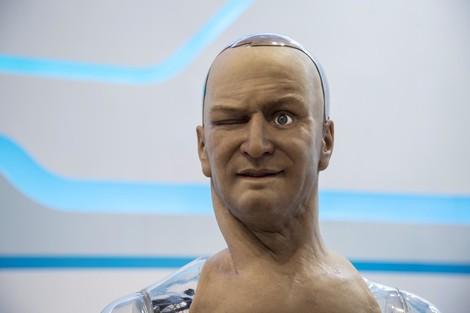Your podcast discovery platform
Curious minds select the most fascinating podcasts from around the world. Discover hand-piqd audio recommendations on your favorite topics.

piqer for: Global finds Technology and society Globalization and politics
Elvia Wilk is a writer and editor living in New York and Berlin, covering art, architecture, urbanism, and technology. She contributes to publications like Frieze, Artforum, e-flux, die Zeit, the Architectural Review, and Metropolis. She's currently a contributing editor at e-flux Journal and Rhizome.
Facebook Abandons Chatbots After They Invent Private Language
Philip K. Dick couldn’t have come up with this himself. Well, he probably could have—but the reality is just so much weirder than the fiction.
Facebook has been working on building robots who can “chat” with each other in order to negotiate exchanges (it isn’t fully clear what Facebook wanted from the experiment, but you can probably hazard a guess). As their mutual language developed, this is one example of what the robots, "Bob" and "Alice", ended up saying to each other:
Bob: i can i i everything else . . . . . . . . . . . . . .Alice: balls have zero to me to me to me to me to me to me to me to me toBob: you i everything else . . . . . . . . . . . . . .Alice: balls have a ball to me to me to me to me to me to me to me
This may make no sense to you, but it apparently makes sense to the robots. They wrote this conversation neither due to glitches nor a desire to create abstract poetry but as a very real form of communication. When they learned from each other according to a specific goal they had been programmed to achieve, they evolved a new and efficient language between themselves.
This bizarre experiment is a wonderful and surreal reminder of how machine learning can escape human prediction—and eventually can, and will, escape human comprehension. And why wouldn’t it? Why would machines learn the same way humans do? Especially when they are not learning from humans, but learning from each other. An echo chamber of weirdness ensues.
Machine language will look different than ours. Perhaps, one can't help but think, the machines are speaking to each other behind our backs already.
